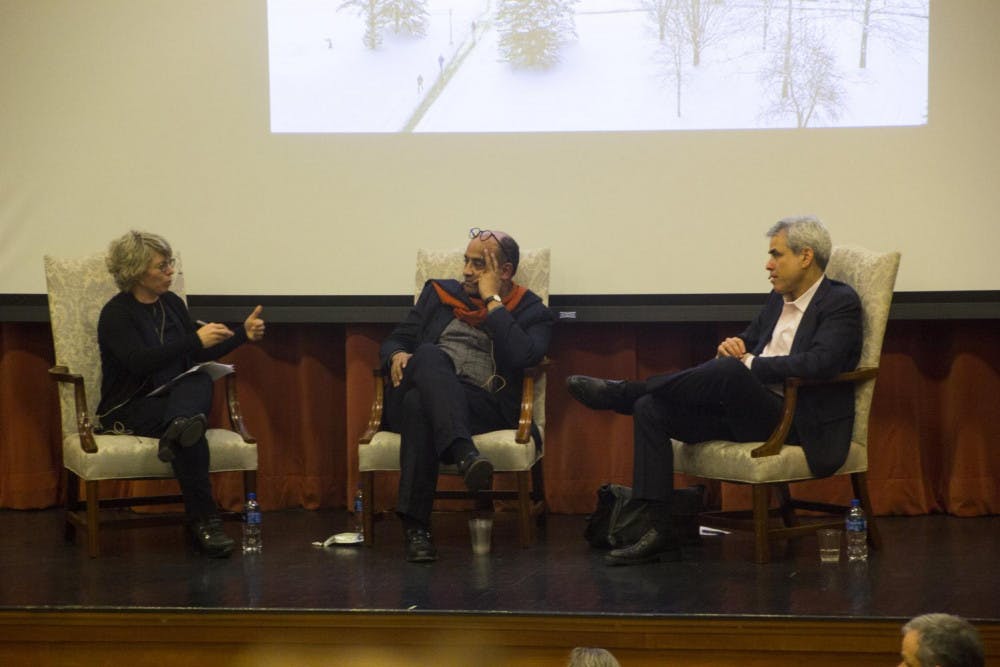Three professors from Harvard and New York universities held a discussion on Feb. 21 addressing the importance of debate on college campuses. The talk, called “Building a Robust Public Sphere,” is part of the “Critical Conversations” series, which was created in 2017 to discuss issues relating to freedom of speech and inclusivity.
President Laurie L. Patton, who delivered the opening address, noted that in this era of fake news and changing concepts of identity, she hoped this conversation would help create a new ethical ideal of citizenship.
Professor Jill Lepore of Harvard University noted that this conversation has been going on for hundreds of years and is essential to society.
The conversation then moved to a discussion of liberal arts education. Lepore said that liberal arts education is about confronting ideas and beliefs different than our own and that colleges have historically been places to learn to debate.
Professor Jonathan Haidt of New York University raised the question of when authority can stop people from speaking.”
In response to Haidt’s query, Professor Kwame Anthony Appiah indicated that the First Amendment is irrelevant in the classroom. Since the classroom is structured to advance understanding of the topic of study, speech that does not contribute to this goal is therefore not allowed.
The question then arose of who decides what contributes to this goal. Appiah’s response was simple.
“I’m in charge, it’s my classroom,” he said.
Haidt then explained what makes universities so unique: They allow for the expression of differing perspectives.
“If you put a bunch of people together that are all on the same team and you ask them to find the truth around something that matters to them, they cannot do it.” This, Haidt explained, is due to confirmation bias, where groups only search for information which supports their beliefs.
Universities provide an environment for these biases to break down through the sharing of contrasting beliefs. Haidt called this “institutional disconfirmation.”
“If that breaks down, then that whole field of scholarship has broken down and is not reliable and cannot be trusted,” Haidt said.
According to Haidt, one threat to institutional disconfirmation is when individuals outside of the dominant political makeup of an institution are uncomfortable speaking up in class.
“The best way to test ideas is to face them up to serious arguments against them,” Appiah said. However, Appiah acknowledged how difficult this is for students. He said that the easiest way to test ideas is “to find someone who actually thinks [the counterarguments] are the right arguments.”
Appiah stated that his place as a professor is to ensure that discussions function properly. Haidt agreed, saying that if the professor allows students to control the classroom, discussion could quickly devolve into a declaration of war on those whose opinions do not align with those of the majority. This, Haidt warned, would mean the end of the university.




